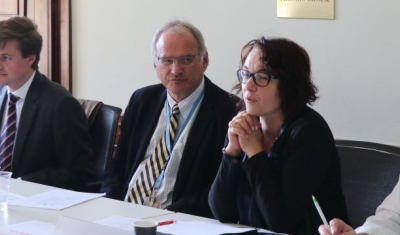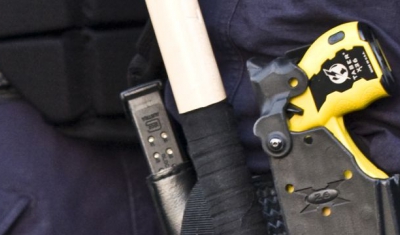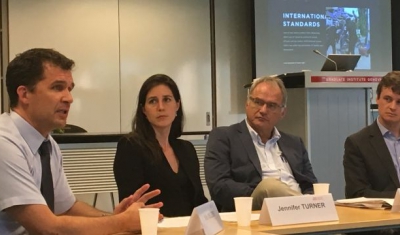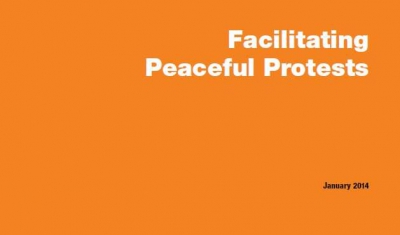Policing of Assemblies: Use of Force and Accountability
In the 2017 annual expert seminar, participants discussed the implications of ‘public order policing’ for the right to life and compared the practices of law enforcement units in different countries. They also analysed current technological and legal developments in the field, both in terms of their potential advantages and the threats they might engender.
Participants also explored the challenges and opportunities of new technologies, including ‘less-lethal’ weapons and unmanned systems, from the perspectives of both the right to life and the prohibition of torture and other cruel, inhuman or degrading treatment. They also focused on the problems related to torture and other cruel, inhuman or degrading treatment in an ‘extra-custodial’ setting.
The seminar concluded with a call to form an academic working group to look more closely at specific issues, starting with the use of LLW.
Use of Force in Law Enforcement and the Right to Life
In the 2016 annual expert seminar, co-organized with the Institute for International and Comparative Law in Africa, participants addressed key issues related to the right to life such as regulation in armed conflict situations and in the context of law enforcement, the role of investigations, new weapon technologies, the mandatory death penalty and the responsibility of non-state actors.
The Geneva Academy In-Brief Use of Force in Law Enforcement and the Right to Life: The Role of the Human Rights Council draws on these discussions to examine how the right to life is affected by law enforcement agencies’ use of force and identify how the HRC could further promote respect for international standards governing policing. The publication also served as a background to the 2017 expert seminar.









